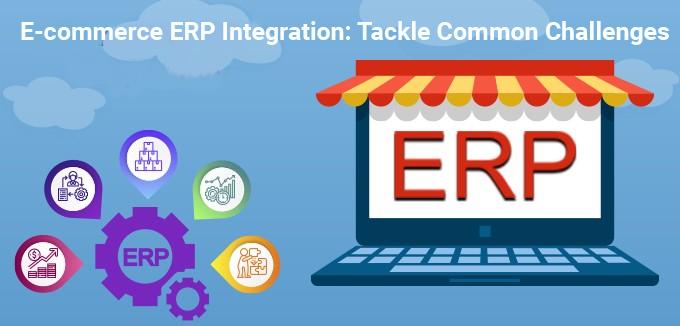Any e-commerce business owner will tell you that the market is so competitive that relying on just one system for the entire expanse of operations is practically a sin. Some tools and technologies can assist companies with virtually every aspect of the business — from managing orders and inventory management to marketing and analytics. One such tool that has led to garner quite a fan following is ERP (Enterprise Resource Planning) system, making them the talk of the town as the e-commerce world gets more and more competitive by the day.
Unfortunately, despite the rise in the popularity of the integration of e-commerce with ERP systems, the truth is that most enterprises continue to struggle with it. Why is that? It is because they underestimate the complex nature of the integration endeavor. An adequate integration syncs data between different systems and empowers the business with a robust platform from where it can achieve unprecedented growth. However, before e-commerce can reach that point, it must contend with a handful of challenges. Moreover, to help you be better prepared to deal with them, we have listed some of the most common problems you are likely to face during your e-commerce ERP implementation project.
-
Ambiguity with regards to needs: You’d be surprised to learn just how many businesses end up ignoring the need to definitively figure out the basic requirements because they were focusing on other elements. Also, this mistake can cost the company dearly, translating into delays, additional efforts, and extra costs. To avoid this, one must be clear about the key objective of the integration and ensure that all the systems and data that will be a part of the process is distinctly separated.
-
Don’t forget the historical data: It is mostly true that once the integration gets completed, the companies don’t have to fret about the data. However, that’s AFTER the integration is completed — what becomes of all the historical data companies typically have stored in various systems? It may help to remember that your business will derive better value from the integration if it is fortified with historical data. However, if you do decide to do that, you will need to spend a lot of time and money to cleanse and organize the data before it can be used with the integrated systems. To cut a long story short, be sure to discuss with your vendor.
-
Practical training: It is a strict no-no to start using ERP tools integrated with your e-commerce systems without having provided relevant training to the people who will use the system. Moreover, it is also inadvisable that you leave the practice for when the integration is nearly complete since it can fail the system since the users will not have received the requisite training and support to use the system successfully.
Integration of ERP system with Magento store or any other e-commerce platform you may be using undoubtedly has the potential to boost growth like you never thought possible. However, that’s as long as you plan the project carefully and effectively deal with the challenges such as the ones listed above.





